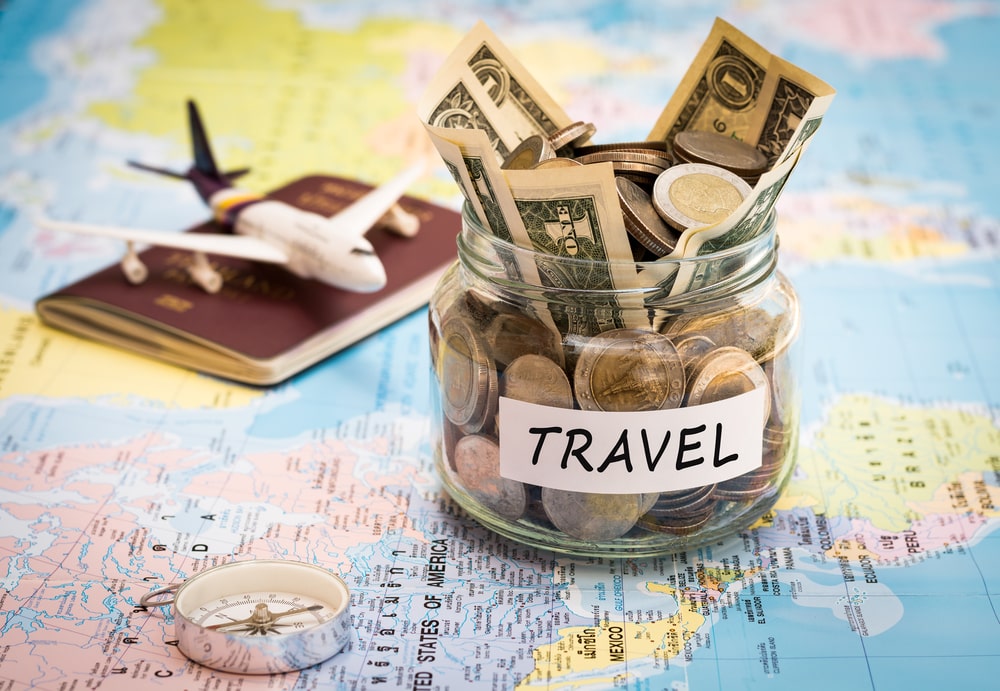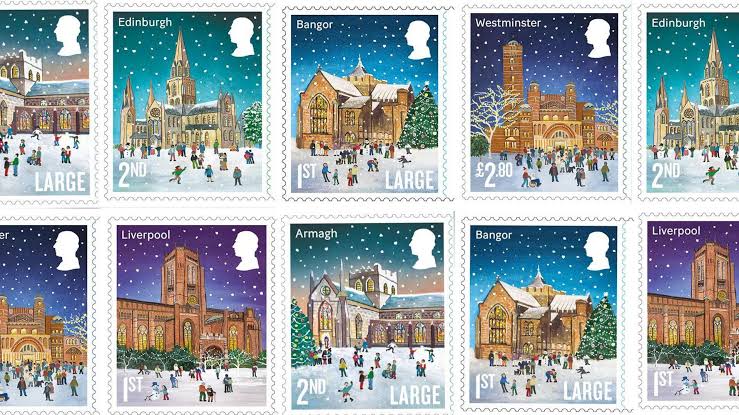Embarking on a journey doesn’t have to drain your wallet. In this article, we’ll explore budget travel hacks that allow you to discover new places without breaking the bank.
Planning Your Itinerary
Planning an itinerary for your budget-conscious adventure involves careful research and strategic decision-making. Here’s a step-by-step guide to help you create a flexible and cost-effective travel plan:
1. Destination Research:
- Look for destinations known for affordability. Southeast Asia, Eastern Europe, and parts of South America are often budget-friendly.
- Consider exchange rates, local prices, and availability of budget accommodation.
2. Budget Assessment:
- Determine your overall budget for the trip, including transportation, accommodation, meals, activities, and miscellaneous expenses.
- Allocate specific amounts to each category, keeping in mind daily spending limits.
3. Flexible Travel Dates:
- Be open to traveling during off-peak seasons when prices for flights and accommodations are generally lower.
- Use flexible date search options on booking websites to find the most cost-effective travel days.
4. Transportation Choices:
- Explore budget airlines, buses, and trains for cost-effective transportation.
- Consider multi-city flights or alternative airports to find the best deals.
5. Accommodation Options:
- Research budget-friendly accommodation options such as hostels, guesthouses, or vacation rentals.
- Look for deals on accommodation booking websites and consider loyalty programs.
6. Local Transportation:
- Use public transportation or walk to explore the destination.
- Consider renting bikes or using rideshare services for short distances.
7. Meal Planning:
- Explore local markets and street food for affordable and authentic dining experiences.
- Cook simple meals if your accommodation provides kitchen facilities.
8. Activities and Attractions:
- Prioritize free or low-cost activities, such as hiking, exploring neighborhoods, or visiting local markets.
- Take advantage of city passes or discount cards for attractions.
9. Emergency Fund:
- Set aside a small emergency fund for unexpected expenses or opportunities.
10. Travel Insurance:
- Invest in travel insurance to cover unexpected medical expenses and trip cancellations.
11. Digital Tools and Apps:
- Utilize budget-tracking apps to monitor your spending in real time.
- Download maps and language translation apps to navigate efficiently.
12. Local Etiquette and Customs:
- Learn about local customs to avoid unnecessary expenses or misunderstandings.
13. Community and Travel Forums:
- Connect with fellow travelers on forums to get tips and insights on budget-friendly experiences.
14. Review and Adjust:
- Regularly review your budget and adjust your spending based on your experiences and changing circumstances.
15. Documentation:
- Ensure you have all necessary travel documents, including visas and vaccination records.
By combining thorough research with flexibility, you can create a budget-conscious itinerary that allows you to make the most of your adventure without breaking the bank.
Transportation Savings

- Flexible Dates and Times:
- Be open to adjusting your travel dates, as flying on weekdays or during off-peak hours can often result in lower fares.
- Use Flight Comparison Sites:
- Leverage online platforms like Skyscanner, Google Flights, or Kayak to compare prices across multiple airlines and find the most cost-effective options.
- Set Fare Alerts:
- Sign up for fare alerts on travel websites or apps to receive notifications when prices drop for your chosen route. This way, you can grab the best deals as soon as they become available.
- Consider Budget Airlines:
- Explore options offered by budget carriers, as they often provide more affordable ticket prices. Keep in mind that some budget airlines may have additional fees, so factor those into your decision.
- Book in Advance:
- Generally, booking flights well in advance can lead to lower prices. However, this may vary depending on the airline and route, so it’s essential to compare prices over time.
- Mix and Match Airlines:
- Consider booking separate one-way flights or mixing airlines for your round-trip journey. Sometimes, this strategy can result in better deals compared to traditional round-trip bookings.
- Use Airline Miles and Points:
- If you have frequent flyer miles or credit card points, check for opportunities to redeem them for discounted or free flights.
Affordable Local Transit Options:
- Public Transportation:
- Utilize buses, subways, or trams, which are often more economical than taxis or rideshares. Many cities have efficient public transportation systems that provide a cost-effective way to explore.
- Walk or Bike:
- Save money and stay active by walking or biking when the distances are manageable. This is a great way to explore a new destination up close and personal.
- Ridesharing and Carpooling:
- If public transportation is not convenient, consider ridesharing or carpooling services. These can be more affordable than traditional taxis and offer a convenient way to get around.
- City Passes and Travel Cards:
- Investigate whether your destination offers city passes or travel cards that provide discounted rates on public transportation and attractions. These can be cost-effective for visitors planning to explore multiple sites.
- Renting a Bike or Scooter:
- In some cities, bike and scooter rentals are becoming increasingly popular. These can be a cost-effective and environmentally friendly way to travel short distances.
- Off-Peak Taxis:
- If you need a taxi, try to use them during off-peak hours or use apps that offer shared rides to reduce costs.
Remember to research and plan ahead to maximize your transportation savings, allowing you to make the most of your travel budget.
Accommodation on a Budget

Finding budget-friendly accommodation is key to saving money while traveling. Fortunately, there are several alternatives to traditional hotels that provide comfort without breaking the bank. Here are some options to consider:
- Hostels:
- Hostels are known for their affordability and social atmosphere. They often offer shared dormitory-style rooms with bunk beds, making them an excellent choice for budget-conscious travelers.
- Many hostels have communal areas where guests can socialize, share travel tips, and even cook their meals, further reducing expenses.
- Guesthouses:
- Guesthouses are smaller accommodations, often family-run, that offer a more personalized experience. They typically have fewer rooms than hotels, creating a more intimate atmosphere.
- In addition to being cost-effective, guesthouses may provide insight into local culture and traditions, thanks to interactions with the owners.
- Vacation Rentals:
- Platforms like Airbnb and Vrbo allow travelers to rent private apartments, homes, or rooms directly from locals. This can be a cost-effective option, especially for those who prefer more privacy.
- Vacation rentals often come with kitchen facilities, allowing guests to prepare their meals and save on dining expenses.
- Budget Hotels:
- While hotels are generally pricier than hostels or guesthouses, there are budget hotel options that offer reasonable rates. Look for hotels that cater to budget travelers and prioritize essential amenities.
- Camping:
- If you enjoy the outdoors, camping can be a low-cost accommodation option. Many campsites offer basic facilities, and camping equipment is often more affordable than hotel rooms.
- Check if the area you’re visiting has designated campsites or if wild camping is allowed with the necessary permits.
Benefits of Booking in Advance:

- Discounts: Booking accommodation in advance often comes with discounts and promotional rates. Many platforms offer early bird deals that can significantly reduce the overall cost of your stay.
- Availability: Popular budget accommodations can fill up quickly, especially during peak travel seasons. Booking in advance ensures you have a wider selection of options and a better chance of securing your preferred choice.
- Peace of Mind: Knowing that your accommodation is sorted well in advance allows you to focus on other aspects of your trip without the stress of last-minute arrangements.
Exploring alternative lodging options and booking in advance can lead to substantial savings while providing a comfortable and unique travel experience. Whether you choose a hostel, guesthouse, vacation rental, budget hotel, or camping, careful planning can make your journey both affordable and enjoyable.
Eating Smart

Eating smart on a budget is about making savvy choices without compromising on flavor. Discovering affordable dining options, such as local markets and delectable street food, allows you to savor delicious meals without breaking the bank. By exploring these alternatives, you not only save money but also open up new culinary experiences. The key is to be resourceful and seek out hidden gems that offer both affordability and taste, proving that a limited budget doesn’t have to limit your gastronomic enjoyment.
Tips for Bargaining
Mastering the art of bargaining is essential in many destinations. Begin by researching local customs and acceptable bargaining practices to determine a suitable starting point for negotiations. Maintain a friendly and respectful demeanor while expressing genuine interest in the product or service. If the initial offer doesn’t meet your expectations, be prepared to walk away. This can often prompt the seller to reconsider. Patience is key, as successful negotiations can involve a lot of back and forth. Don’t reveal your maximum budget too early, and consider bundling items for a better overall deal. Ultimately, a successful negotiation ensures that you secure the best value for your money while respecting the local culture.
Conclusion
In conclusion, budget travel is not just about saving money; it’s about maximizing experiences without compromising your financial well-being. By implementing these budget travel hacks, you can venture into new territories with confidence and financial prudence.





















